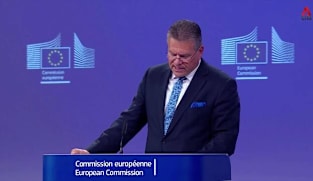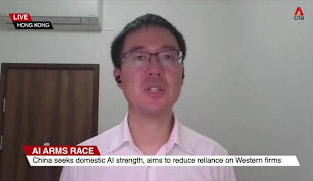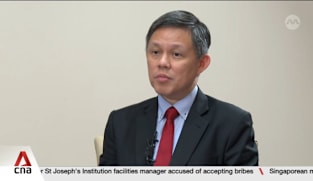Seah Kian Peng on Maintenance of Parents (Amendment) Bill
The last key changes to the Maintenance of Parents Act (MPA) were made in 2010, advocating a “conciliation-first” approach. These have been effective in reducing the number of cases that went before the Maintenance of Parents Tribunal. The world has changed quite significantly in the last 12 years, and it is timely for another review and more changes, said MP Seah Kian Peng. He told Parliament on Tuesday (Jul 4) that a workgroup he led to review the law wants to enhance the powers and processes to ensure that neglected elderly parents are adequately supported and to prevent misuse of the law by those who did not fulfill their duties as parents. He described them as an “even-handed recalibration for both parties”. The first key change is to require parents with records of abandonment, abuse or neglect against their child to first seek the permission of the Tribunal for the Maintenance of Parents before they can proceed with their claim. Mr Seah pointed out that there have been cases of parents filing maintenance claims against the children they had abandoned, abused or neglected. This caused severe and undue distress to their children and violated the principle of reciprocity and fairness, he said. He stressed the need to prevent those who had abandoned, abused or neglected their children from misusing the law, and to spare their children from unnecessary distress. Specifically, parents have to declare whether they had records of abuse, neglect or abandonment against the child whom they are claiming against, and the Commissioner will screen against official databases for prescribed records. A second key change is to give the president and deputy president of the tribunal the powers to dismiss frivolous or vexatious applications, where it is already clear from the evidence that the application is without merit. A third proposal is to enhance protection for destitute elderly parents by getting the children to attend conciliation and discuss care arrangements. Mr Seah said this “softer approach” will still uphold the principle that children have the obligation to maintain their parents and allow the Commissioner to hear the children’s side of the story and encourage them to support the parents. Fourthly, the workgroup proposed allowing the tribunal to make non-monetary directions to help to address fundamental issues in the family. In cases where the tribunal finds that the parent has issues related to problem gambling, it can require the parent to attend gambling counselling. For highly acrimonious cases, family counselling is a potential order. Mr Seah stressed that the MPA is “not about legislating filial piety” but is needed to ensure legal recourse for needy elderly parents who struggle with children who refuse to support them. “It also sends out a firm signal of what we as a society stand by,” he said.
The last key changes to the Maintenance of Parents Act (MPA) were made in 2010, advocating a “conciliation-first” approach. These have been effective in reducing the number of cases that went before the Maintenance of Parents Tribunal. The world has changed quite significantly in the last 12 years, and it is timely for another review and more changes, said MP Seah Kian Peng. He told Parliament on Tuesday (Jul 4) that a workgroup he led to review the law wants to enhance the powers and processes to ensure that neglected elderly parents are adequately supported and to prevent misuse of the law by those who did not fulfill their duties as parents. He described them as an “even-handed recalibration for both parties”. The first key change is to require parents with records of abandonment, abuse or neglect against their child to first seek the permission of the Tribunal for the Maintenance of Parents before they can proceed with their claim. Mr Seah pointed out that there have been cases of parents filing maintenance claims against the children they had abandoned, abused or neglected. This caused severe and undue distress to their children and violated the principle of reciprocity and fairness, he said. He stressed the need to prevent those who had abandoned, abused or neglected their children from misusing the law, and to spare their children from unnecessary distress. Specifically, parents have to declare whether they had records of abuse, neglect or abandonment against the child whom they are claiming against, and the Commissioner will screen against official databases for prescribed records. A second key change is to give the president and deputy president of the tribunal the powers to dismiss frivolous or vexatious applications, where it is already clear from the evidence that the application is without merit. A third proposal is to enhance protection for destitute elderly parents by getting the children to attend conciliation and discuss care arrangements. Mr Seah said this “softer approach” will still uphold the principle that children have the obligation to maintain their parents and allow the Commissioner to hear the children’s side of the story and encourage them to support the parents. Fourthly, the workgroup proposed allowing the tribunal to make non-monetary directions to help to address fundamental issues in the family. In cases where the tribunal finds that the parent has issues related to problem gambling, it can require the parent to attend gambling counselling. For highly acrimonious cases, family counselling is a potential order. Mr Seah stressed that the MPA is “not about legislating filial piety” but is needed to ensure legal recourse for needy elderly parents who struggle with children who refuse to support them. “It also sends out a firm signal of what we as a society stand by,” he said.



















